Rottweilers are a beautiful breed with a big reputation. Sure, they’ve got that tough, muscle-bound look that might make the mailman nervous, but behind that intense stare is often a giant softie.
A well-raised Rottie? You’re looking at a confident, even-tempered, and downright lovable companion who’s as brave as they come—minus the unnecessary aggression.
They can be a little aloof with strangers, but once you’re in their circle, you’re family for life. Trust me, there’s a lot more to these dogs than just their bouncer vibes. Let’s dig into what makes the Rottweiler such a legendary breed.
Origin & History: From War Dogs to Couch Kings
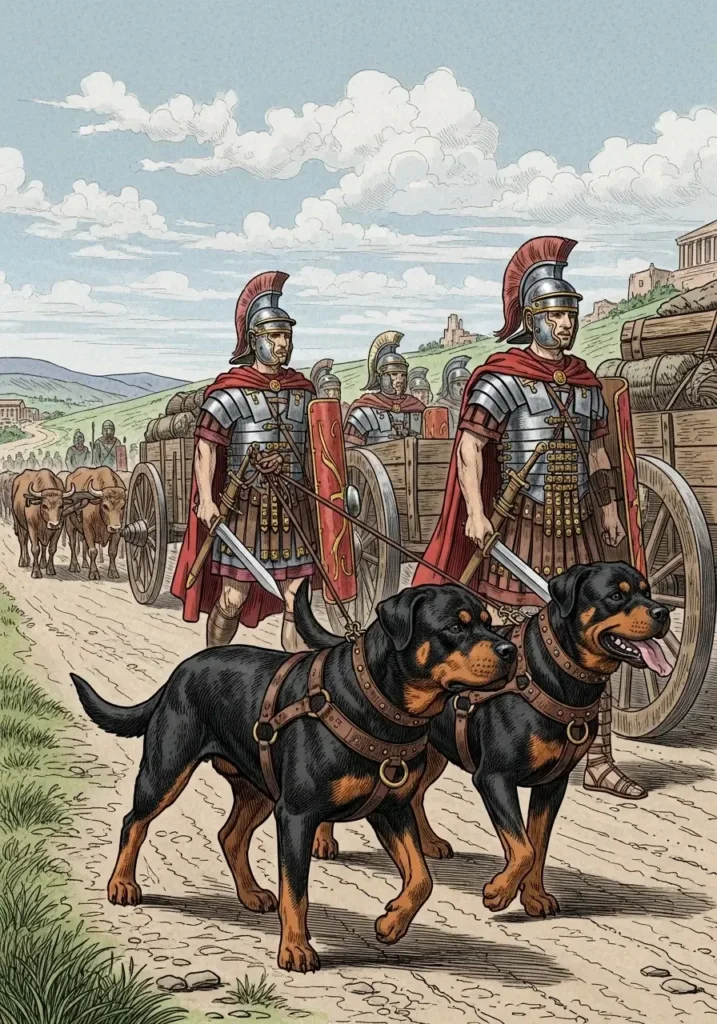
You know how some dogs were bred to chase rats or sit on laps? Yeah, Rottweilers missed that memo. These dogs were rolling with Roman armies over 2,000 years ago.
As the soldiers marched across Europe, their dogs herded cattle, protected camps, and probably intimidated the heck out of bandits.
- Birthplace: Rottweil, Germany (where they got their name)
- Original Jobs: Herding, cart pulling, guarding
- Nickname: The Butcher’s Dog — because they’d guard meat carts like their lives depended on it
Over time, as technology replaced cattle drives, Rotties took on new roles—police dogs, military dogs, therapy dogs, and yeah, champion snugglers.
Physical Appearance

You can’t miss a Rottweiler. Their build screams “I hit the gym six days a week,” but they carry it with grace.
- Size: Males usually weigh 95–135 lbs, females 80–100 lbs
- Height: 22–27 inches at the shoulder
- Coat: Short, thick, and glossy — perfect for low-maintenance grooming
- Color: Always black with tan, rust, or mahogany markings
And that classic look? Broad head, strong jaw, deep chest. It’s like someone sculpted a guard dog out of granite and gave it the soul of a teddy bear.
FYI: A Rottie’s expression might say, “I’ll guard this house with my life,” but they’re often thinking, “Did someone say treat?”
Temperament & Personality: Big Dog, Bigger Heart
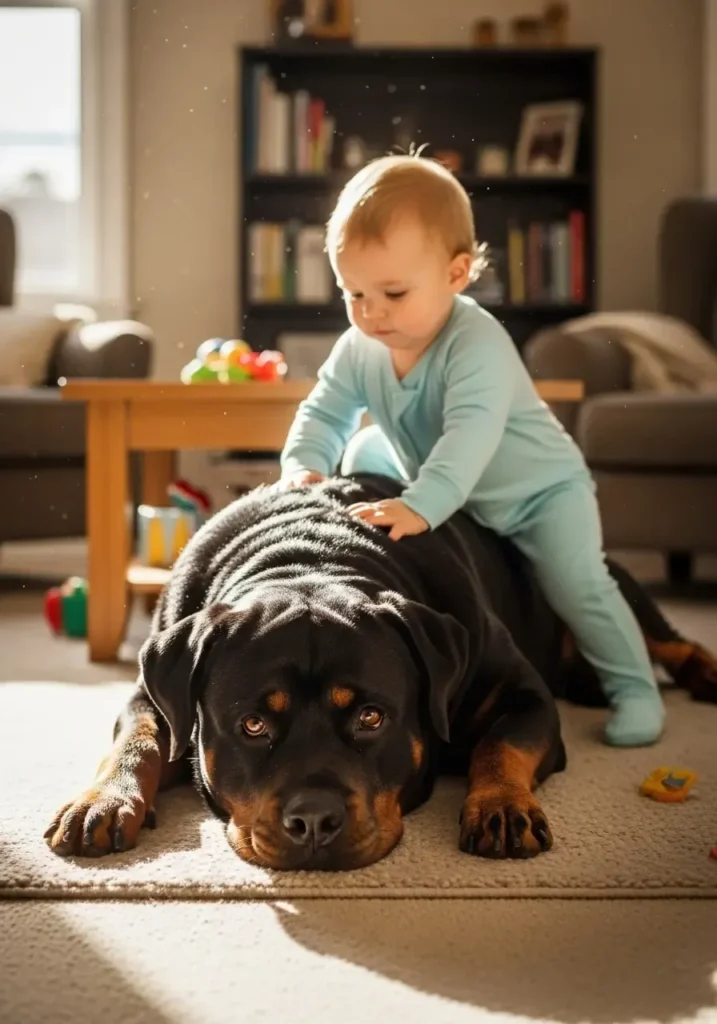
Let’s crush a stereotype real quick: Rottweilers aren’t naturally aggressive. What they are is incredibly loyal, deeply loving, and super protective of their people.
Raise them right, and they’ll be one of the best companions you could ask for.
- Confident and calm – They’re not the type to bark at leaves. They pick their moments.
- Playful goofballs – Especially when they think nobody’s watching. Zoomies? Oh yeah.
- Protective instincts – They’ll keep you safe, but they’re not hair-trigger. Think bodyguard, not bouncer.
- Aloof with strangers – Until they warm up. Then it’s all tail wags.
IMO, Rottweilers are the perfect mix of chill and challenge. They’re loving with family, serious when they need to be, and hilariously clumsy during playtime.
Training a Rottweiler: Brains with Brawn
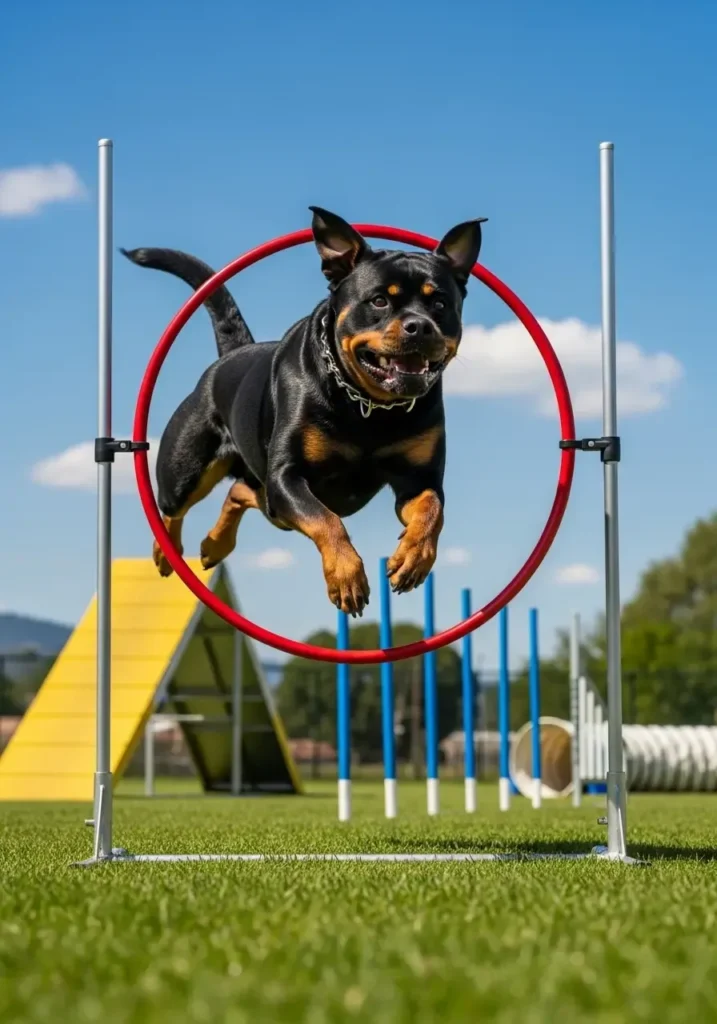
Ever tried reasoning with a 100-pound toddler? That’s a poorly trained Rottie. These dogs are smart, like “learn tricks in two tries” smart. But they can also be stubborn if you let them take the lead.
Training Tips
- Start early: Puppy training classes are gold.
- Positive reinforcement: Treats, praise, and play work wonders.
- Stay consistent: Mixed signals = confused (and potentially pushy) dog.
- Socialize like crazy: Expose them to new people, pets, and places early and often.
Training a Rottie isn’t just about control—it’s about building a bond. And when that bond forms? You’ve got a ride-or-die best friend.
Exercise Needs: Couch Potato? Try Gym Rat.
If you’re looking for a lazy lapdog, keep scrolling. Rottweilers need regular physical and mental stimulation to stay happy.
Daily To-Do List for a Happy Rottie:
- Walks: 1–2 long walks per day
- Playtime: Fetch, tug-of-war, backyard zoomies
- Brain games: Puzzle toys, obedience drills, scent games
- Jobs: They love tasks—agility training, cart pulling, or even carrying a doggy backpack on hikes
A bored Rottie is a destructive Rottie. They’ll redecorate your house with their teeth if they don’t have an outlet for all that energy. 😬
Health & Lifespan: Big Dog, Big Responsibilities
Sadly, big dogs often come with shorter lifespans, and Rotties are no exception. But with good care, they can live long, healthy lives full of tail wags and belly rubs.
- Average lifespan: 8–10 years (some make it to 12+ with stellar care)
Common Health Issues:
- Hip & elbow dysplasia – Typical for larger breeds
- Aortic stenosis – A heart condition, so annual vet checks matter
- Cancer – Particularly bone cancer in older dogs
- Obesity – Watch those calories, folks!
Pro Tip: Get pet insurance early and build a relationship with a vet who knows large breeds.
Feeding a Rottweiler: The Right Fuel for the Machine
Feeding a Rottie is like fueling a sports car—you can’t just toss in whatever and expect peak performance.
- Puppies: 3–4 meals a day of large-breed puppy food
- Adults: 2 meals daily with protein-rich, balanced nutrition
- Avoid overfeeding: These guys love food… maybe too much
Look for:
- Protein as the first ingredient
- Omega-3s for joint and coat health
- No fillers or by-products
And yes, they will give you the sad eyes when you’re eating. Stay strong. 😅
Grooming & Maintenance: Surprisingly Low-Key
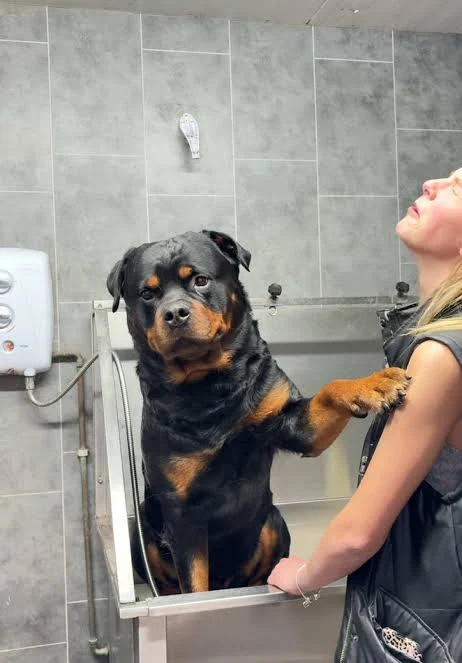
Despite their size, Rottweilers are refreshingly low-maintenance on the grooming front.
- Brushing: Once or twice a week (more during shedding season)
- Bathing: Every 6–8 weeks or when needed
- Nails, ears, and teeth: Regular trims and cleanings are a must
Their short coats mean less fur on your couch, but don’t get cocky—spring shedding season is real.
Living with a Rottweiler: Is This the Breed for You?
Before you sprint to the nearest breeder or shelter, take a sec to ask yourself:
- Do I have time for daily exercise and training?
- Am I confident with large, strong dogs?
- Can I provide consistent leadership?
- Do I want a dog who doubles as a bodyguard and cuddle buddy?
If you said yes to all that—congrats. A Rottweiler might just be your spirit animal.
Fun Facts You’ll Want to Drop at Parties
- Rottweilers were among the first guide dogs for the blind.
- They can carry backpacks during hikes (hello, trail buddy!).
- They’re natural swimmers—even if they look more like lifeguards than lifeboats.
- Rotties rank in the top 10 most intelligent dog breeds.
Final Thoughts: So, Is the Rottie Life for You?
A Rottweiler isn’t just a dog—it’s a lifestyle. They’ll challenge you, love you fiercely, and probably sit on your lap despite being the size of a small horse.
If you’re up for the responsibility (and the snuggles), a Rottie can be the most rewarding, loyal, and loving dog you’ll ever meet.
Just remember: train well, socialize early, and always keep treats in your pocket.
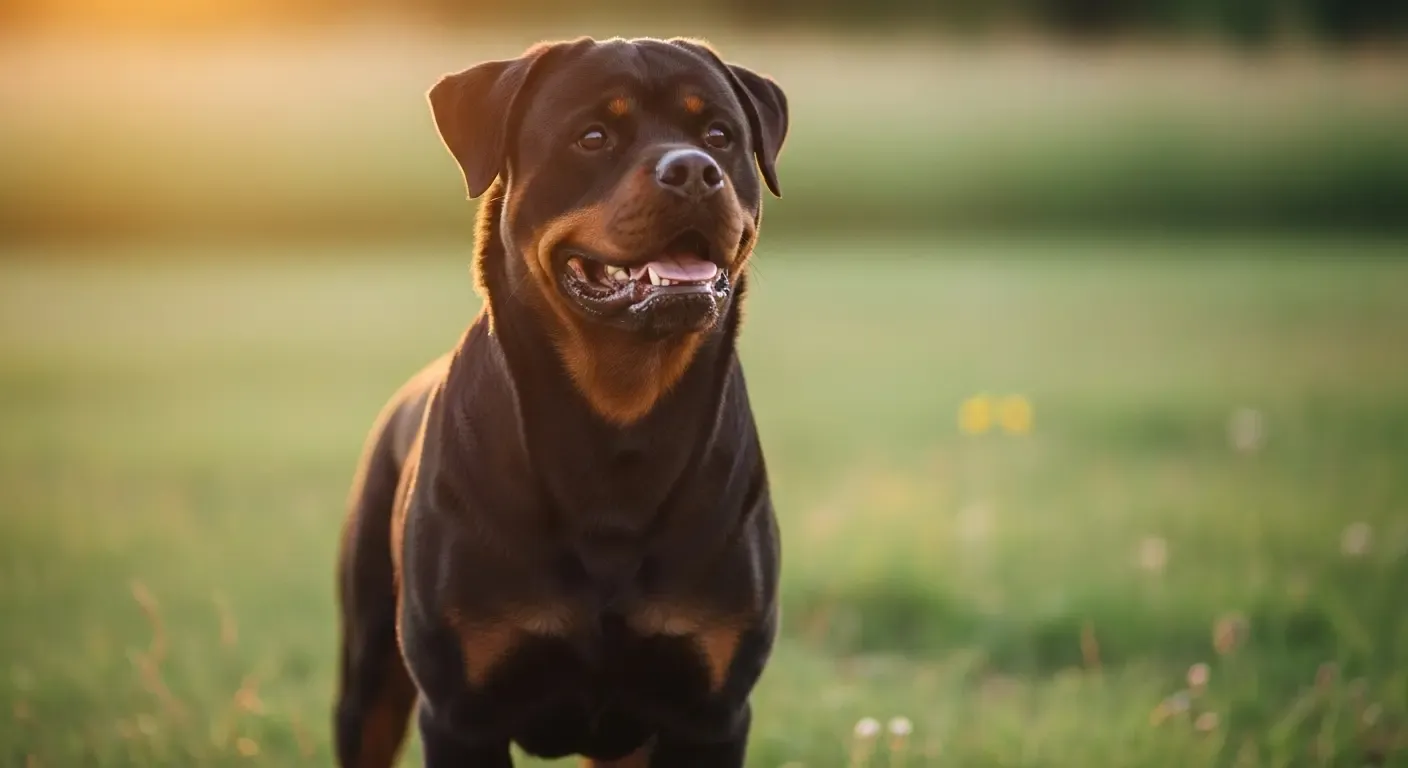
I love the breed! Very intelligent and protective of family.
True ❤️
I have a pair of Rotties and they’re exactly what this article says about them. One of the best dogs you could ever have in your life.
That’s awesome to hear! Rotties really do live up to their reputation when they’re raised with love and care. Loyal, goofy, and protective all rolled into one—it’s hard not to fall in love with them.